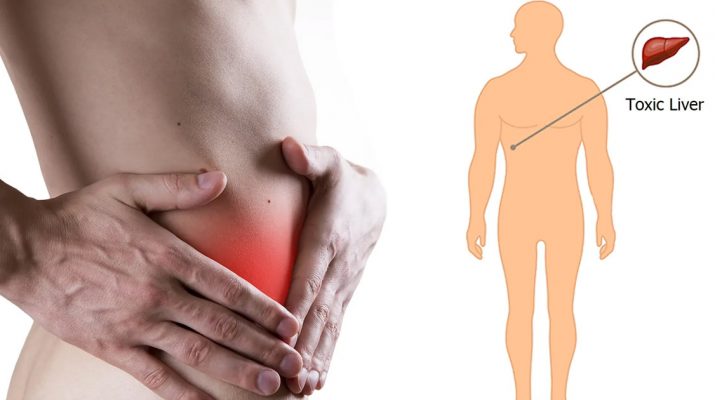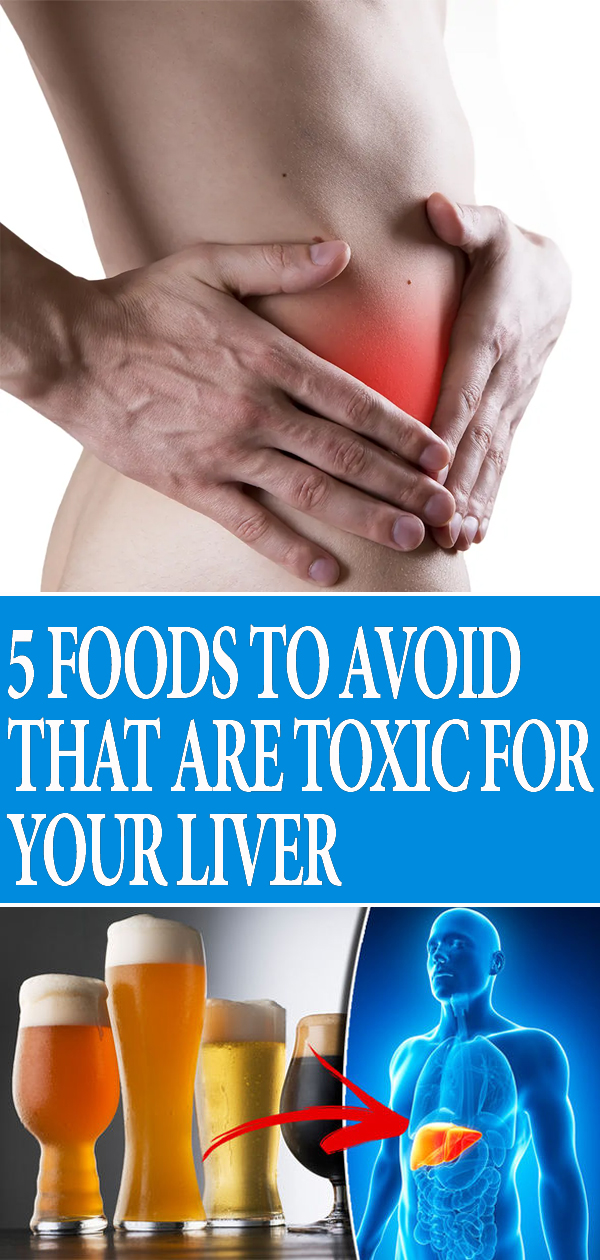Your liver is the unsung hero of your digestive system. Once your stomach and intestines have done the job of crushing your food into mulch, the nutrients from that food are sucked out and sent to the liver for filtering.
As a result, any food you consume impacts your this organ, so it’s important to make sure you aren’t overloading this organ with foods that can damage it. Foods that are high in fat or toxins can cause problems.
Here Are 5 Foods That Are Toxic For Your Liver
“Your liver is your vital detoxification organ, and if it becomes overloaded with toxins from the food, drink, or medications you’re consuming, you’ll have more toxins circulating throughout your body, damaging your organs and glands…” – Suzanne Somers
1. Alcohol
One of the best-known facts about the organ is that drinking too much can cause it to shut down. But why is that? The main reason is that alcohol can cause a buildup of a toxic enzyme called acetaldehyde. With just one or two drinks in your system, the liver is able to flush out that enzyme and it doesn’t cause many problems.
But with binge drinking or heavy consumption of alcohol, it can become overloaded. This may result in alcohol poisoning. Try to stick to a few drinks, and keep hydrated with water, to prevent your liver from being flooded with this enzyme.
A result of long-term drinking can be fatty buildup and inflammation of the liver. Excessive drinking can damage the liver with toxins and, as a result, it cannot filter out fats. The alcoholic fatty liver is the first stage of alcohol-related diseases, but it is reversible. Cutting down on drinking and eating liver-healthy foods can help.
2. Fried Foods
In addition to alcoholic fatty liver, there is nonalcoholic fatty liver. This problem is common. Though the liver’s main function is to break down nutrients, when it becomes overloaded with fats, it can’t keep up. Fried foods and other high-fat foods can cause nonalcoholic fatty liver, so it’s best to avoid them for the most part.
The extra fat can cause swelling and scarring, thus permanently damaging the organ’s ability to filter nutrients. As an alternative to frying food, consider sautéing your foods in healthy fats (such as coconut oil) or broiling them in the oven to get them good and crispy.
3. High-Fructose Foods
Other causes of non-alcoholic fatty liver include a high carbohydrate load. Sugar triggers a process in the body called lipogenesis, which produces extra fat. In today’s market, the most common carbohydrate is fructose, which often comes in the form of high-fructose corn syrup. Though it can be daunting to try and reduce sugar intake, stay positive and do your best to start cutting down on unnatural sugars.
4. High Salt Content
Anything in excess can cause damage, and that includes salt. Though salt is known for increasing blood pressure, it can harm other parts of your body. New studies have shown that having too much salt in your diet can cause damage and scarring to your liver.
Luckily, antioxidants like vitamin C can help to decrease that damage. You should avoid foods high in sodium, as well as try adding new foods to your diet. Try eating foods high in vitamin C, such as strawberries, kale, and bell peppers.
5. Red Meat
Red meat can deal a double whammy of difficult nutrients for the body to metabolize. It is also high in iron, which the body has no way to dispose of. If your diet is too high in iron, it can start to build up and damage your liver. Red meats are also saturated in fat, therefore a diet with too much red meat can cause fatty buildup.
Occasional meals with red meat aren’t a big concern, but you shouldn’t be eating beef for dinner every night. Consider altering red meat recipes to have different proteins such as chicken, fish, or eggs. If you’re really craving a red meat, try a leaner cut like a round roast or top sirloin.
Final Thoughts
Liver damage is a daunting problem, and it can lead to major consequences including cirrhosis and other disease. Cutting down on liver-damaging foods is important. Even though changing your diet can be a big adjustment, it’s a necessary evil if you hope to protect one of the most crucial organs in your body.


